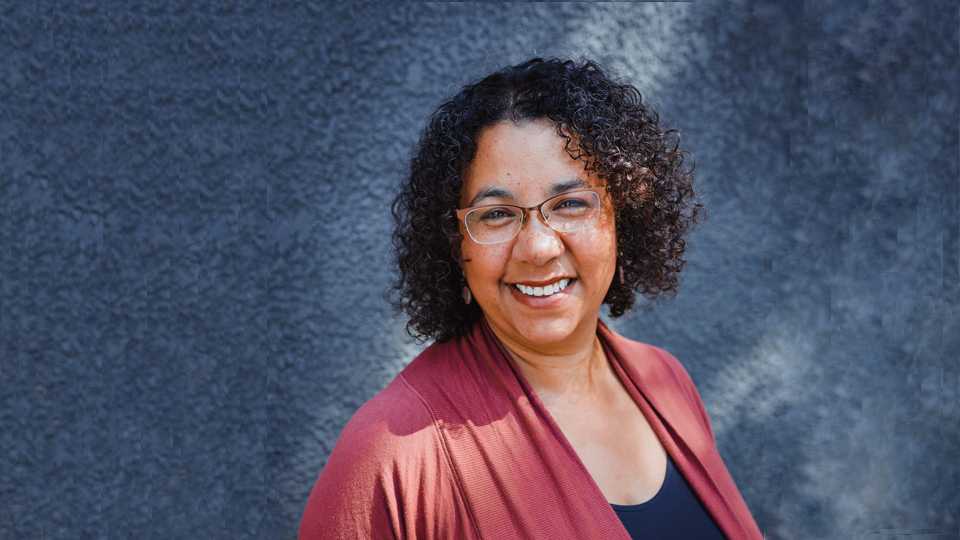
Rebecca Polston is a Certified Professional Midwife and owner of Roots Community Birth Center. Polston was a community organizer, fighting racism in housing policy, when she began to notice the tragic toll of maternal mortality and morbidity on Black communities. She became Minnesota’s first Black Certified Professional Midwife and opened Roots in North Minneapolis. Polston says creating community-based care eliminates disparities and empowers her patients to feel heard and welcomed. Blue Cross and Blue Shield of Minnesota was the first insurer in the state to cover Roots’ services and help Polston build the practice.

Q. What is a community birth center, and how is it different from a hospital setting?
Roots is a freestanding, community-based center for prenatal care, birth and postpartum care, staffed mainly by midwives and nurses. It’s a practice focused on eliminating disparities, building up a diverse midwifery workforce and creating a welcoming space for Black birthing families.
But a community birth isn't just about the location. It's about the care that comes with it. For example, all of our prenatal care visits last between 30 and 60 minutes. I have some amazing colleagues in the hospital system. We can't do what we do without being able to access the hospital and the resources that are available. But in conventional health care delivery systems, they can usually only spend about 15 minutes per visit, and those visits are often with several different providers. A nurse might do your vitals, the midwife might talk to you for a few minutes and a nutritionist might talk to you about your gestational diabetes. At Roots, we don’t silo those experiences. They all happen within the same visit. We’re able to provide holistic care. And that creates trust, accountability and respect.
Q. A disproportionate percentage of Black birthing people have higher risk factors for birth complications. What can you do to mitigate those risks in a birth center?
We focus all of our prenatal care on lowering a pregnant person’s risk. Also, the holistic, patient-focused care we’re able to provide helps us identify risks or needs early and address them, whether it’s chronic disease, domestic violence or food insecurity. We’re pretty successful at that. We can connect birthing people who remain high risk to higher levels of care in hospitals if needed. What this means is that every family who births here and gets to that place has a full-term healthy pregnancy. In our eight years, we’ve had one pre-term birth and zero maternal mortality. That’s not consistently the outcome we're seeing in hospital settings. For us, that means that every birth here is about one person who has defied the odds.
Q. Research shows outcomes for Black newborns are often better if they have Black providers, like midwives. But we don’t have enough Black midwives. How do we change that?
Approximately 2-7% (estimates vary) of the midwifery workforce is African American in our country. We need to find ways to increase the number of and support for midwifery care in the community because, as you say, the research shows that Black birthing people have better outcomes when they work with Black midwives. To increase the diversity of our midwifery workforce, we need to compensate maternity care more equitably and effectively. It is completely undervalued right now—especially prenatal care. If it were more highly valued, then midwifery would be a more sustainable career. If education were more affordable, Black midwives could afford to work in community settings and not be strapped with crushing student debt. Part of my mission at Roots is to train the next generation of Black midwives and advocate for placing more value on the profession.